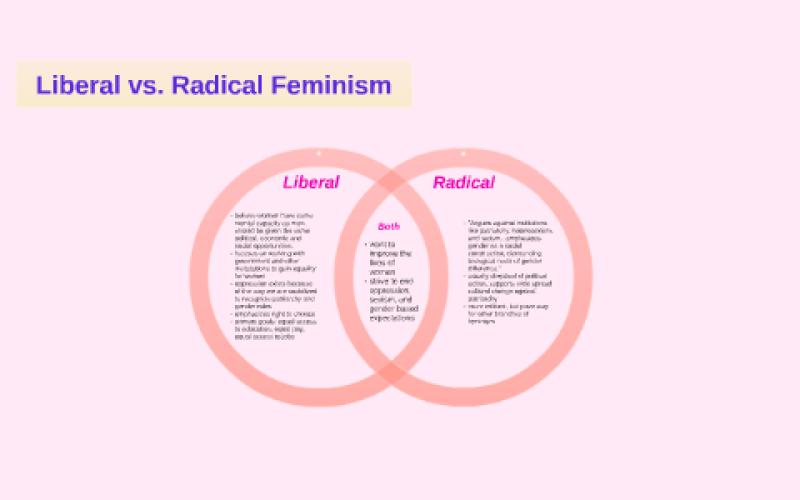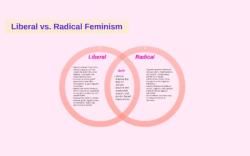What causes radical feminism?
Radical feminism arises from a combination of social, political, and personal factors that highlight deep-rooted gender inequalities. Here’s what generally causes or motivates radical feminism:
Causes of Radical Feminism:
Systemic Patriarchy
Radical feminists see patriarchy—a system where men hold power and dominate social, political, and economic life—as the fundamental cause of women’s oppression. They believe society is structured to maintain male dominance.Experiences of Gender Oppression and Violence
Many radical feminists are motivated by personal or collective experiences of sexism, discrimination, sexual violence, and exploitation. These experiences reveal to them the pervasive nature of gender-based power imbalances.Frustration with Reformist Approaches
Radical feminism emerged partly as a response to dissatisfaction with liberal feminism, which seeks equality through gradual reforms. Radical feminists argue that reforms don’t address the root causes of women’s oppression.Critique of Existing Social Institutions
Radical feminists challenge traditional institutions like marriage, family, and religion, which they view as reinforcing male dominance and women’s subordination.Desire for Fundamental Social Change
The belief that deep, systemic changes are necessary to uproot male supremacy and achieve true gender equality drives radical feminist thought.
Summary:
Radical feminism is caused by a recognition of the pervasive, systemic nature of gender inequality and a belief that fundamental restructuring of society is necessary—not just legal or policy changes. It grows out of both intellectual critique and lived experiences of oppression.
What Are the Causes of Radical Feminism?
Radical feminism emerged in the late 1960s and early 1970s as a response to the perceived failures and limitations of liberal feminism and other social movements of the time.
How Does Radical Feminism Differ From Other Feminist Movements?
Radical feminism is distinct from other feminist movements primarily in its core belief that patriarchy is the fundamental cause of female oppression.
Liberal Feminism: Liberal feminists focus on achieving equality through legal and political reforms, such as equal pay laws and the right to vote. They aim to work within the existing system to create change. Radical feminists, in contrast, argue that the system itself is the problem and must be dismantled.
Marxist/Socialist Feminism: These movements focus on how capitalism and class structures contribute to women's oppression. While they see economic inequality as a key issue, radical feminists argue that patriarchy predates and is more fundamental than capitalism.
Cultural Feminism: This branch emphasizes celebrating and valuing the unique qualities and virtues traditionally associated with women.
While some radical feminists share this focus on female culture, radical feminism as a whole is more focused on political action and the overthrow of patriarchal structures.
What Social Issues Fuel Radical Feminism?
Radical feminism is fueled by a range of social issues and injustices that it views as manifestations of patriarchy.
Violence Against Women: Issues like domestic violence, sexual assault, and harassment are not seen as individual acts but as tools of patriarchal control.
Reproductive Rights: The control of women's bodies and reproductive choices by male-dominated institutions is a central concern.
Objectification and Sexualization: The portrayal of women in media and pornography is seen as a way to dehumanize women and reinforce male power.
Gender Roles and Socialization: The traditional roles assigned to men and women are viewed as a key mechanism for maintaining the patriarchal system from birth.
How Has Radical Feminism Influenced Society?
Radical feminism has had a significant and lasting impact on society, even though its most extreme ideas are not mainstream.
Awareness of Patriarchy: The movement popularized the concept of patriarchy as a systemic force, influencing how many people understand gender relations today.
Creation of Institutions: Radical feminists were instrumental in creating grassroots institutions to support women, such as rape crisis centers and women's shelters, which provide vital services.
Legislative Change: The movement helped push for legislative changes related to sexual harassment and domestic violence.
Language and Culture: Radical feminism introduced and popularized terms like "gender" as a social construct and "sexual politics," shifting public discourse on these topics.
What Are Common Misconceptions About Radical Feminism?
Radical feminism is often misunderstood and misrepresented. Common misconceptions include:
All radical feminists hate men: While the movement is critical of patriarchal power structures, it does not necessarily mean an individual hatred of men. The focus is on the system, not the individuals within it.
Radical feminists are anti-sex: This is a complex issue, but the misconception often stems from the movement's critique of pornography and BDSM, which it views as perpetuating male dominance. However, many radical feminists believe in female sexual liberation and agency.
Radical feminism is the same as "man-hating": The term "man-hating" is often used to dismiss feminist critiques. Radical feminism's focus is on challenging male supremacy and power, not on expressing general animosity toward men.


